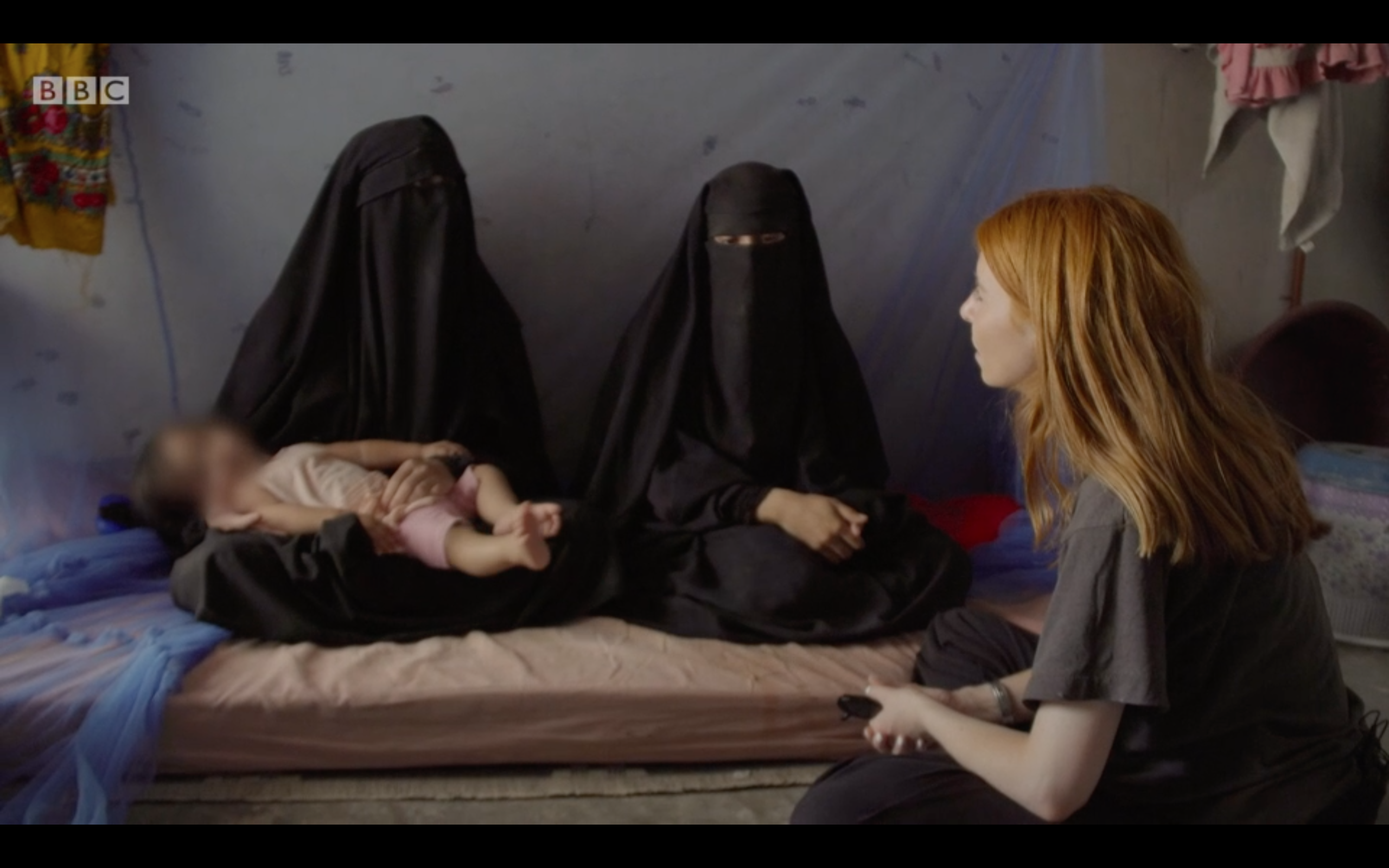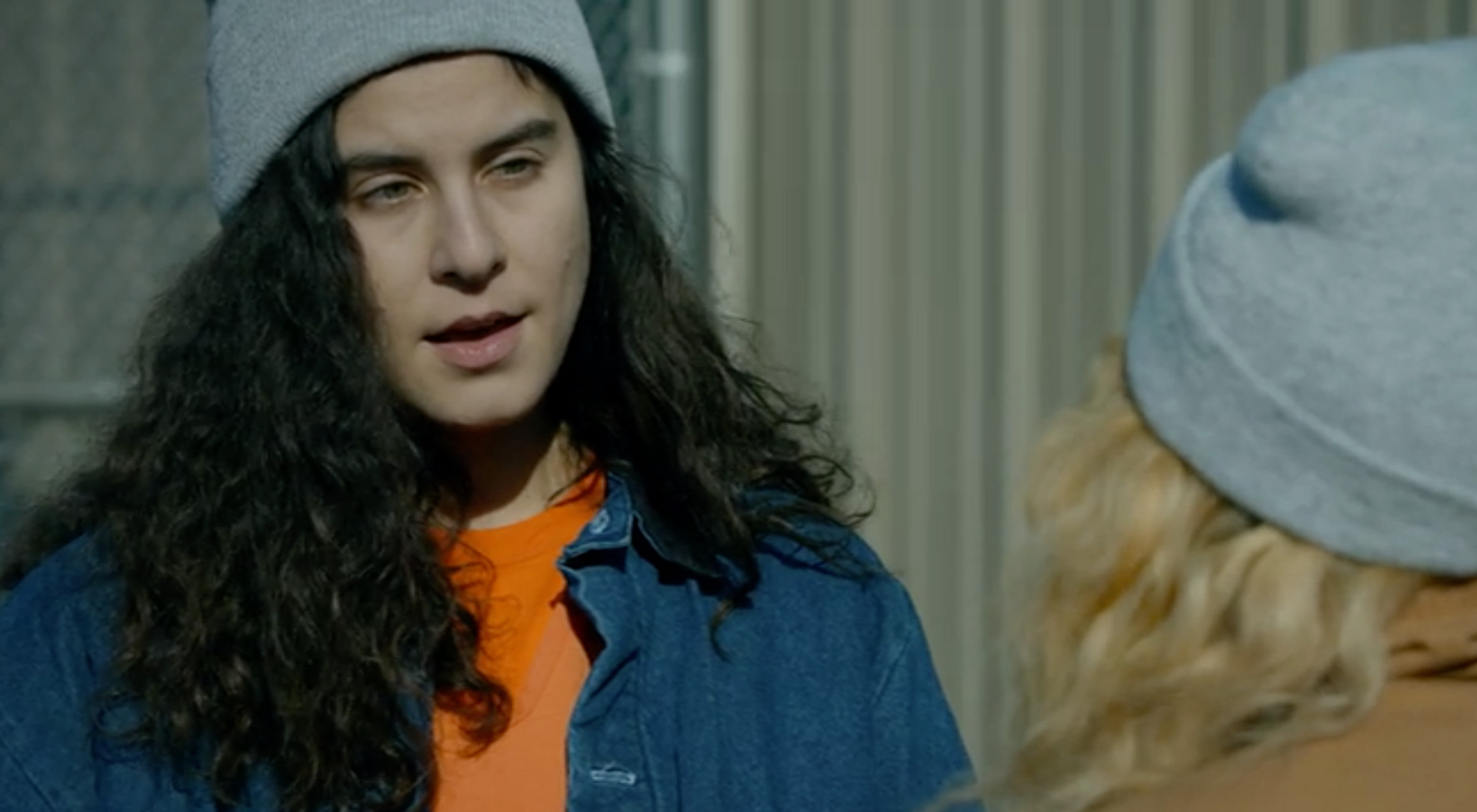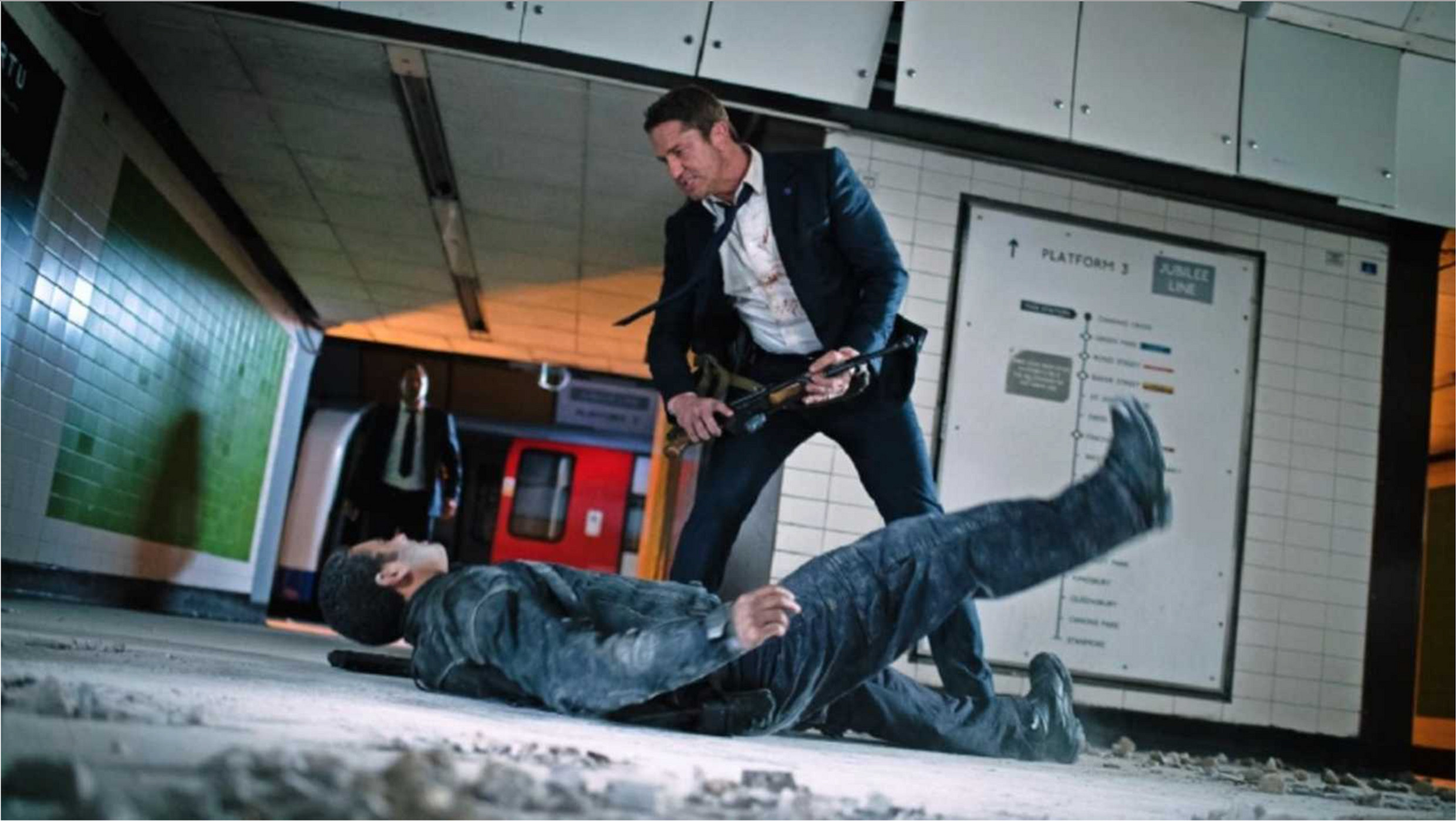Stacey Dooley, a British reality show participant turned documentary maker, travels to northern Syria to speak with European women who had emigrated to live under ISIS rule, but who now live in Kurdish-run camps.
While Stacey Meets the IS Brides doesn’t represent fictional Muslims or Arabs, it does exemplify the problematic lazy portrayals that Muslim Impossible aims to combat.
Poor reporting
In the first half of the 29-minute documentary, Dooley roams Al-Hawl camp, poking her head into tents, asking passers-by where the British are kept and demanding that someone comes along and does her job for her. “I need to speak to some women,”she repeats, “who are willing to give me an honest account of what life was like under ISIS.”
All the women interviewed claim they didn’t know any details about ISIS’ violence, and Dooley is right to be sceptical. But one wonders on what grounds she felt herself qualified to take on such a topic, with barely a passing understanding of the situation.
In a scene that was deleted following criticism, Dooley refers to women raising their fingers in the air – a symbol of tawhid, or the oneness of God in Islam – as an Isis salute. She commits basic reporting errors – such as misreporting the death of a female guard in the camp. In reality, a male guard was stabbed, and survived. She centres herself in the documentary, highlighting the need for a security team and chaperones. She cuts off, and corrects the morality of the women she is interviewing, despite claiming that she wants to hear from them.
It speaks volumes that Panorama chose to send a woman with questionable journalistic skills and no familiarity with the region, religion or languages to investigate “IS brides”, itself an infantilising and inflammatory title. Neither Dooley or Panorama actually wished to understand what life was like under IS; they wanted some shocking soundbites, and failed to get them, despite Dooley’s desperate efforts: “You are Isis women… Do you support Isis? Just please answer the question.”
Projection and othering
It is difficult to distinguish between truth and lie in the camps, we are informed, but we’re offered plenty of unsubstantiated assertions from the presenter: support for Isis is still strong in the camps, lots of women want to recreate Isis in the camp, young girls are beaten for not wearing the niqab. This may be true, but it’s unclear on what basis, if any, these claims are made. Are these facts unearthed from the same place as the “Isis salute” and “murdered female guard”?
“We know that lots of the women living here, they want to recreate the Islamic State in al-Hawl camp, so if they believe some women are misbehaving, or, you know, they’re speaking badly of ISIS, they’ll be punished…maybe they’ll burn their tents down.”
A documentary about IS should offer facts; instead we watch thirty minutes of an ill-informed celebrity meandering around a camp, passing off hearsay and projection as truth. We should hold documentaries centred around the Middle East – even and especially when they deal with extremely sensitive topics – to the same standard as we’d hold a documentary set in the UK.
Othering
Perhaps most telling is Dooley’s shock when confronted with people who look like her living in the camps. She points to children in the distance in an uncomfortable moment of voyeurism: “What’s very surreal as you’re walking around the camp, so many of the kids are so clearly of European descent – bright blue eyes, blond hair, really fair skin.”
She meets an Australian woman off-camera and remarks, surprised, “She’s got no hijab, nothing on. [Her hair in] little bunches. You could walk past her on Bondi beach.”
More troubling, however, was the conclusion to the documentary. Already born to conflict and oppression, the narrative sets the children born under Isis as timebombs.
“Jihad was a part of every child’s schooling,” we hear. When Dooley encourages the West to take responsibility for its citizens, it is not because it’s our duty to look after British and European children and infants, but because we don’t want them growing up to be terrorists.
In Stacey Meets IS Brides, not all children are equal. The children of IS fighters are only “innocent of any crimes for now… every day they stay increases the chances that they follow in their parents’ footsteps.”
However well-intentioned this documentary, Dooley’s mishandling and misrepresentation betrays her naivety about the complexity of the topic, and her narrative demonstrates her perception of camps, Isis and poverty as reserved for non-white people.
The fact that a documentary about a topic as complex as IS, that required a security detail, and interviewed the Kurdish Minister for Foreign Affairs lasted less than 30 minutes tells us how spectacular its failure was.
2/5
Stacey Meets IS Brides receives two bloodied swords for its lazy reporting, and for falsely perceiving itself to offer nuance.



